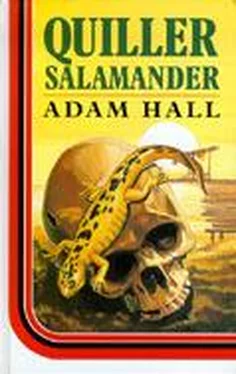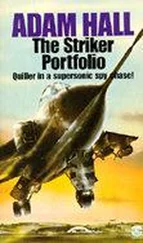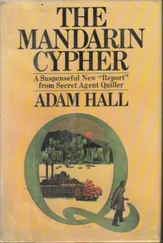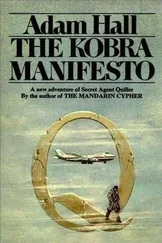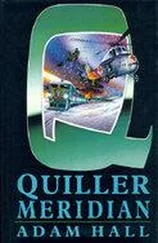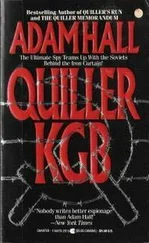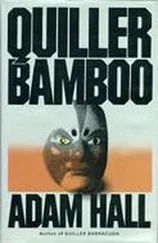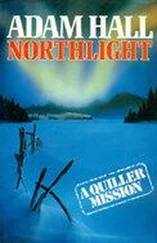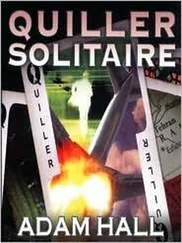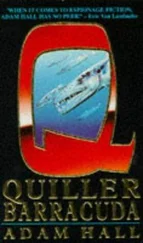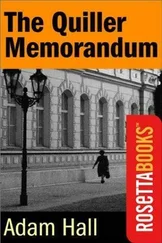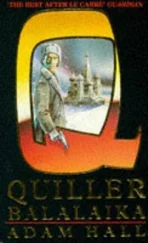'British?' the policeman asked. Sweat dripped from his chin onto the papers. I didn't say anything; two men were coming out of the building, and I couldn't remember seeing them go in. 'British?' the policeman asked again.
'What? Yes.'
He gave my papers back. 'Foreigners move car. Not place here for car.'
I put the papers into my wallet and got out a 1,000-riel note and gave it to him and he went away. The two men were getting into a Toyota and I lost interest. Only one man would come through those doors and get into the ivory-white Honda and he was my target.
I'd brought nothing for an overnight stop from the house in Kralahom Kong: I might have to abandon the Mazda at some stage of the operation and wanted to travel light. But I had enough coins for a phone call, my only connection to my director in the field. I'd told Pringle at the airport that I'd found my own base, but hadn't told him where, and he'd been expectedly stuffy.
'I'd prefer,' he'd said, 'that you use the safe-house we've set up for you in Keochea Street.'
'Is it Bureau?'
Without looking down: 'Actually, no. But the man who owns it has a deep hatred of Pol Pot and is in our debt.'
'I'll think about it,' I told him. 'Deep hatreds can flare up at the wrong time, and I don't want any excitement.'
In the end Pringle had said he'd be reluctant in the extreme to report to Mr Flockhart that I refused to use their safe-house and I'd said that was tough shit and when I left the airport I made sure he wasn't in my mirror.
12:31.
Another man came out of the building but he didn't go anywhere near the white Honda. The long siesta had begun, and at any moment my target should be leaving his office, to drive home and be with his grieving family again. But nothing was certain, except that the sun had reached its zenith and the streets were shimmering.
A sheet of pale green paper came eddying through the open window of the Mazda and my reaction was slow because of the heat and it worried me: it could have been something else, a hand with a knife in it, or a gun. A Caucasian woman in a white T-shirt and slacks was moving away behind the car.
The heading on the pamphlet read: EURASIAN ACTION COMMITTEE, CHURCH OF CHRIST.
In this report we shall address a tragic situation in Bangkok, Thailand, that has been given a token reference in the
general media but nothing more. Thai and other travel agents working with the airlines are boosting the tourist trade
in that country by offering package tours for men only at the equivalent of 4,000 US dollars, with a promise of — and
we quote — 'Four days and nights of exotic entertainment that is guaranteed to satisfy any man's wildest dreams.'
Three Asians moved beyond the top edge of the pamphlet and went into the building; they were wearing camouflage outfits and combat boots; I couldn't see any weapons. Conceivably they were out of the jungle, guerrillas from the Khmer Rouge forces.
It is known throughout Asia that at least half of the male and female prostitutes reserved for European and American
tourists are below the age of fifteen, and at least half of them are carrying the HIV virus, while many are passing into
the first stages of AIDS, despite spurious 'medical certificates' to the contrary. This was not mentioned at the recent
conference in Amsterdam on the rapidly-spreading global AIDS epidemic. The Geneva-based Association Francois-
Xavier Bagnoud, which runs a shelter for child prostitutes in Thailand, has also reported that according to the
testimony of a girl rescued from a brothel and questioned, she was constantly beaten and underfed, and that girls
were taken away and shot by their pimps when they fell sick or were of no further use. We urge you to do whatever
is in your power to make it widely known, beginning with your family, your friends, and your representatives, that
unless the most strenuous diplomatic pressure is brought to bear on the Thai government to cease trading in tragedy,
the present efforts of the Church of Christ to succour the suffering must prove of little avail. We want to see the world
that God created made fit for His people to live in. Is that too much to ask? But we ask more — we ask for your help,
for without it we can do so little, and with it we can do so much.
I folded the sheet of cheap, badly-printed paper and put it away.
At 1:13 the young Kampuchean running the fruit stall dragged a roll of canvas down across the front and put the cash box into his patched shoulder-bag and got onto his bicycle and wobbled away, the back of his sweat-stained T-shirt proclaiming him to be a supporter of the Brooklyn Dodgers.
And then the rain came, driving across from the coast and blotting out the dark burnished gold of the temple domes and quenching the sun, bringing a false twilight into the streets.
In the middle of the afternoon the white Honda was still standing over there beside the building, half-lost to sight in the rain, and I realized that the agent must have been driven away by one of the men who had gone inside, and that his car could still be there at midnight, or in the morning. But that was an assumption, and I didn't act on it. I had no other lead: the block of apartments where he'd dropped off the women was in the centre of the city, a difficult surveillance target; it could also be that he didn't live there himself, might not go there to comfort his family before tomorrow, if then..
At six in the evening, when the only moving shapes were the trucks ploughing through the downpour along the airport road, I opened the door of the car and emptied the Coke bottle and filled it and emptied it again, for this relief much thanks, but it didn't help the overall situation, which was that I'd been sitting here on the bloody peep for most of the day and could be here for most of the night.
The smell of frying was coming from somewhere, seeping through the vents of the car, and I realized I hadn't eaten since early this morning, would need to take in some protein as soon as I could, but this wasn't the right time because a man was coming out of the Import-Export building now, huddled against the rain as he jogged across to the Honda and got in.
This was at 6:14 and I noted it simply because it might be a habit of his to leave there at this time of the day. It wouldn't be dark for another hour but the sky was still heavy and the headlights of the Honda came on and I waited until it had splashed through the mud beside the building and turned south before I started up and took a left and two rights and another left as fast as I could and got him in my sights again at a distance of fifty yards, closing the gap a little but leaving my lights off, keeping track of him through the rain with the wipers moaning across and across the windscreen as we kept on going south until we reached Pokambor Boulevard and turned south-east towards the Killing Fields of Choeung Ek.
The point of no return was the ninth stair.
That was my estimation.
There were twelve stairs and I was now on the eighth, watching the crack of light under the door on the landing above me. It was at eye-level. It had taken me a long time to reach here, perhaps fifteen minutes; this was partly because the stairs creaked — the villa was old, with cracked plaster walls and rotting timber — and partly because the situation was so dangerous and I didn't want to hurry.
Voices came from below the door, voices and tobacco smoke creeping blue-grey in the crack of light.
I've told them so often at Norfolk when I'm roped in as a temporary instructor between missions: Never use a staircase when you're approaching a hot zone unless there's no other way. And even then think twice. To help get it into their heads I throw them the statistics from a report I remember reading on safety in the home: 'In dwellings of more than one floor, thirty-five per cent of fatal accidents occur on the stairs. Fifteen per cent of these involve the elderly, fifty-two per cent occur when something bulky is being carried down the stairs, and thirty-three per cent occur when hurrying.'
Читать дальше
